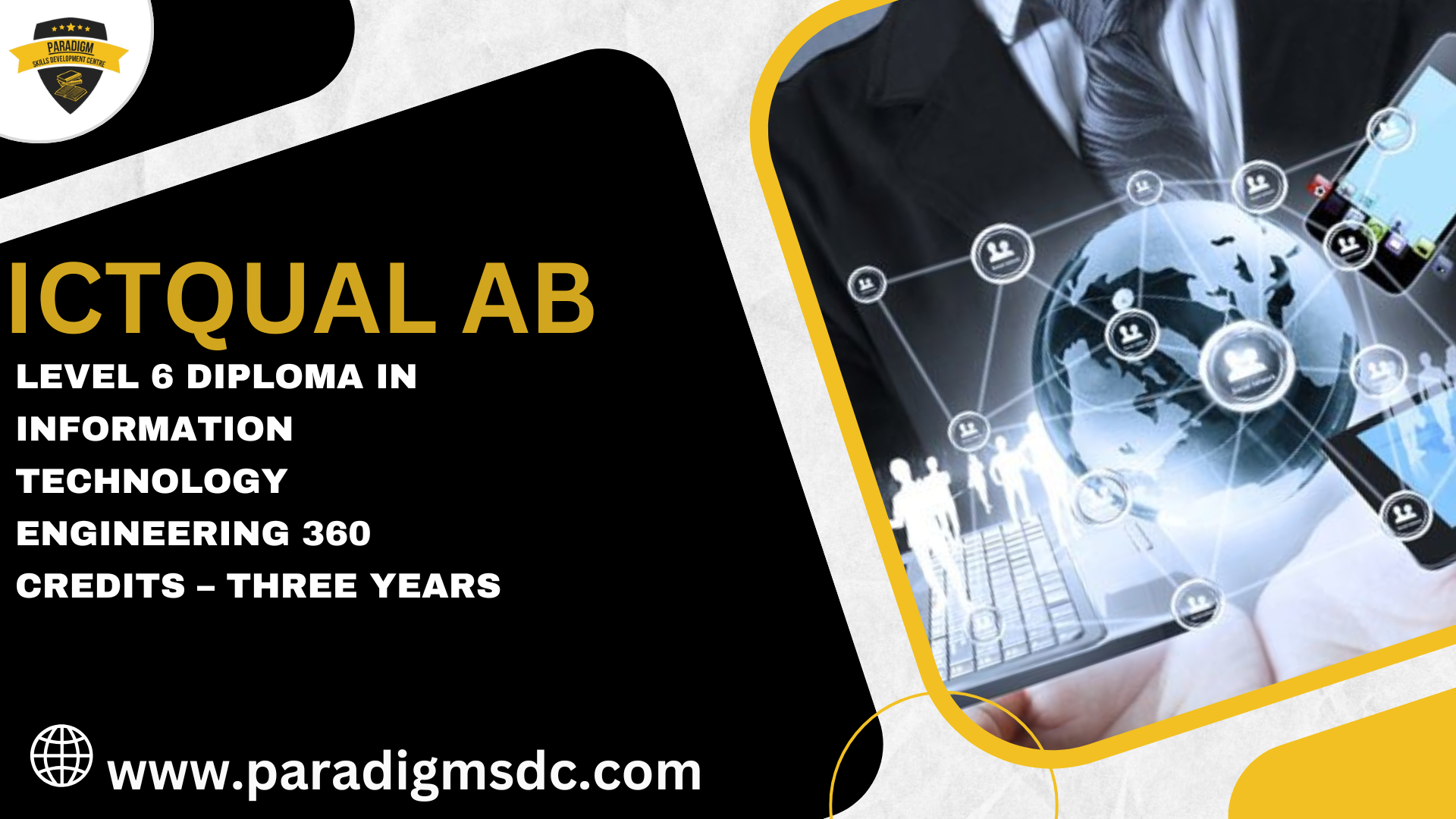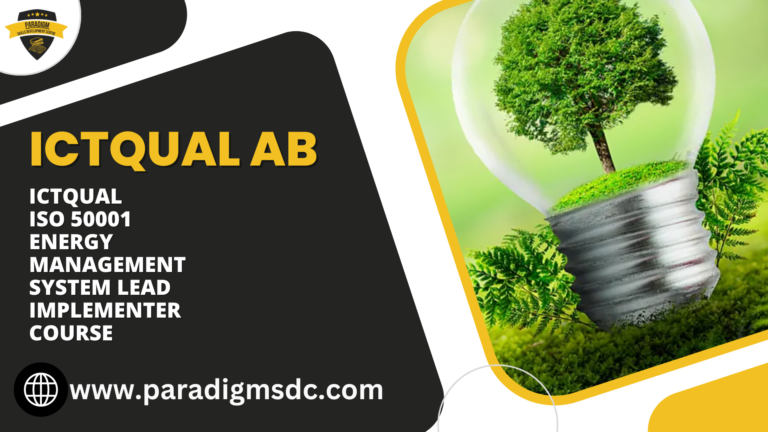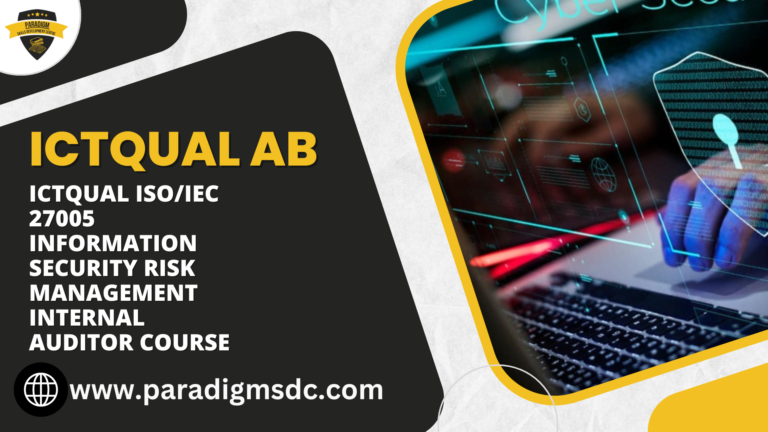Are you interested in advancing your career in Information Technology (IT) engineering? The ICTQual Level 6 Diploma in Information Technology Engineering is an excellent choice for those looking to specialize in the field of IT engineering. This three-year program offers an in-depth understanding of core IT concepts and practical engineering skills that will open doors to high-level positions in the IT sector.
The ICTQual Level 6 Diploma in Information Technology Engineering is a highly recognized qualification designed to equip learners with the advanced skills required in the IT industry. This diploma program is structured over three years and focuses on various technical and theoretical aspects of IT engineering. It aims to develop expertise in system design, network engineering, and software development, making it a perfect choice for those seeking to build a strong foundation in IT engineering.
Choosing the ICTQual Level 6 Diploma in Information Technology Engineering is an investment in your future. With a balanced approach of theoretical knowledge and hands-on experience, you will graduate with the skills required to thrive in the fast-paced world of IT. This qualification is globally recognized, giving you an edge in a competitive job market.
The ICTQual Level 6 Diploma in Information Technology Engineering offers a comprehensive pathway to becoming a skilled IT engineer. Over the course of three years, you’ll gain the expertise, experience, and qualifications needed to excel in various IT engineering roles. Whether you’re just starting or looking to take your IT career to the next level, this program is the perfect choice to shape your future
Study Units:
Introduction to Information Technology
Computer Architecture and Hardware
Operating Systems Fundamentals
Networking Fundamentals
Programming Principles
Database Design and Management
Web Technologies and Development
IT Support and Troubleshooting
Mathematics for IT
Introduction to Cybersecurity
Systems Analysis and Design
Project Management Fundamentals
Learning Outcomes:
Introduction to Information Technology
Understand the basic concepts of IT systems, hardware, and software components.
Computer Architecture and Hardware
Explain the structure and functionality of computer hardware and its interaction with software.
Operating Systems Fundamentals
Demonstrate knowledge of operating system concepts, functions, and administration.
Networking Fundamentals
Identify key networking concepts, protocols, and design basic network infrastructures.
Programming Principles
Apply fundamental programming techniques to develop basic software solutions.
Database Design and Management
Design and implement relational databases, and use SQL for data manipulation.
Web Technologies and Development
Develop simple web applications using HTML, CSS, and JavaScript.
IT Support and Troubleshooting
Identify and solve common hardware and software issues in IT systems.
Mathematics for IT
Apply mathematical concepts to solve IT-related problems, including algorithms and data structures.
Introduction to Cybersecurity
Understand key cybersecurity concepts, common threats, and basic protection measures.
Systems Analysis and Design
Analyze business requirements and design IT systems to meet these needs.
Project Management Fundamentals
Understand basic project management principles and apply them to IT projects.
Year 2: Specialized IT Engineering
Advanced Networking and Protocols
Design and configure advanced network infrastructures using modern protocols.
Cloud Computing and Virtualization
Understand cloud computing models and implement virtualized environments.
Advanced Programming Techniques
Apply advanced programming techniques such as object-oriented programming and design patterns.
Advanced Database Systems
Design and optimize complex database systems for enterprise applications.
Mobile Application Development
Develop and deploy mobile applications for different platforms.
System Security and Risk Management
Assess and implement security measures to protect IT systems from risks and vulnerabilities.
Enterprise IT Infrastructure
Design and manage enterprise-level IT infrastructures to support business operations.
Software Engineering and Development Lifecycle
Apply software engineering principles throughout the software development lifecycle.
IT Management and Governance
Implement IT management strategies and governance models to align IT with business goals.
Business Intelligence and Data Analytics
Analyze and interpret data to provide business insights and decision-making support.
Human-Computer Interaction
Design user-friendly interfaces and improve user experience based on HCI principles.
Ethical and Legal Issues in IT
Understand ethical dilemmas and legal requirements in the IT industry and apply them in practice.
Year 3: Professional Development and Advanced Implementation
Advanced Networking Technologies
Design and implement advanced networking technologies, including SDN and 5G.
Artificial Intelligence and Machine Learning
Apply AI and machine learning algorithms to solve complex IT engineering problems.
Cybersecurity for IT Professionals
Implement advanced cybersecurity measures to protect IT systems in a professional environment.
Cloud Infrastructure and Services
Manage cloud infrastructure and services to optimize business operations.
Project Management for IT Projects
Lead and manage complex IT projects using advanced project management methodologies.
Advanced Software Development Practices
Apply best practices in software development to create high-quality, scalable software solutions.
System Integration and Implementation
Integrate diverse IT systems into a unified solution, ensuring compatibility and performance.
IT Research Methodologies
Conduct IT-related research, using appropriate methodologies to investigate and solve technical problems.
Professional Practice and Ethics
Demonstrate professionalism and ethical behavior in the IT industry.







